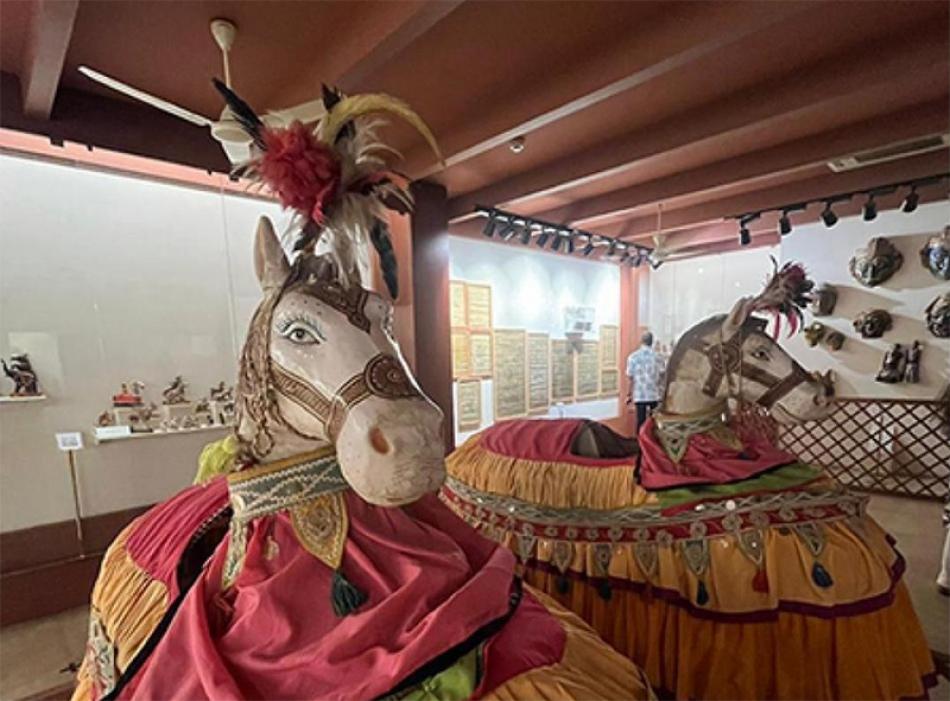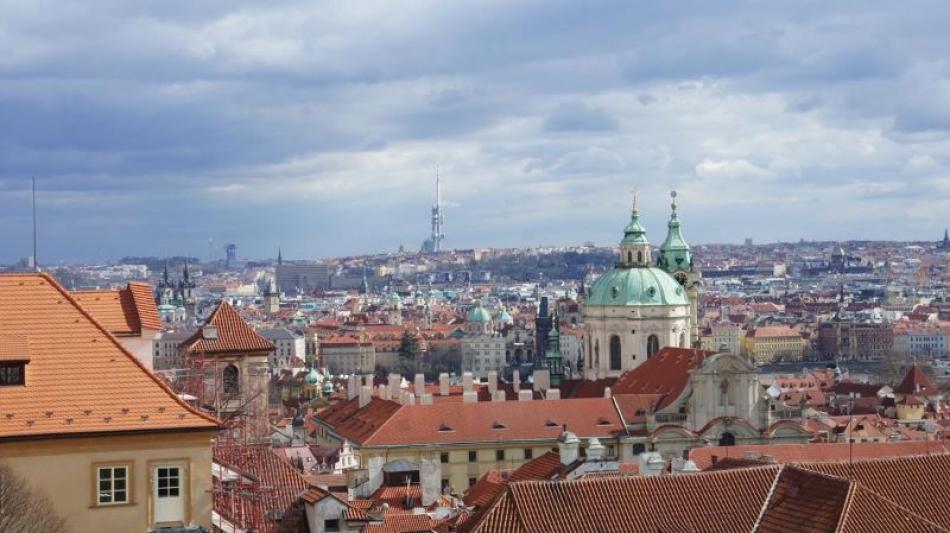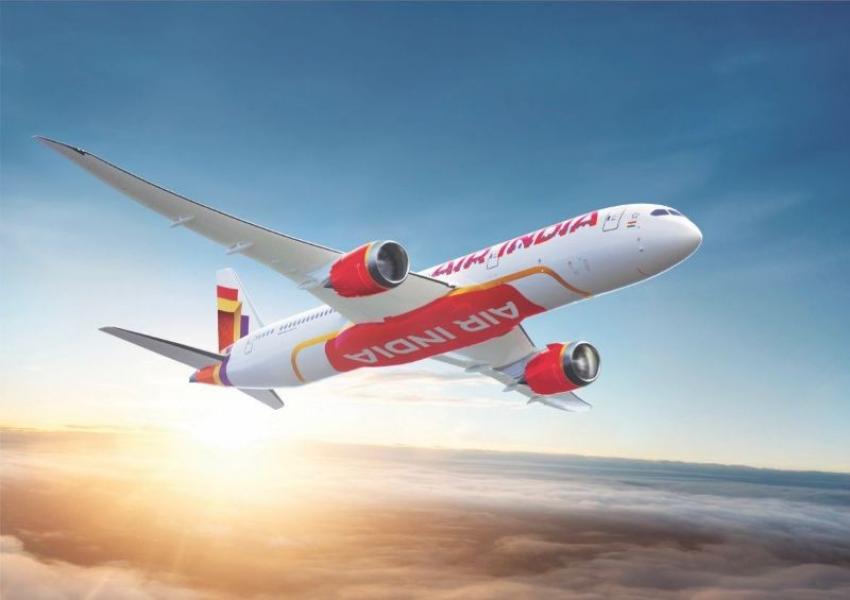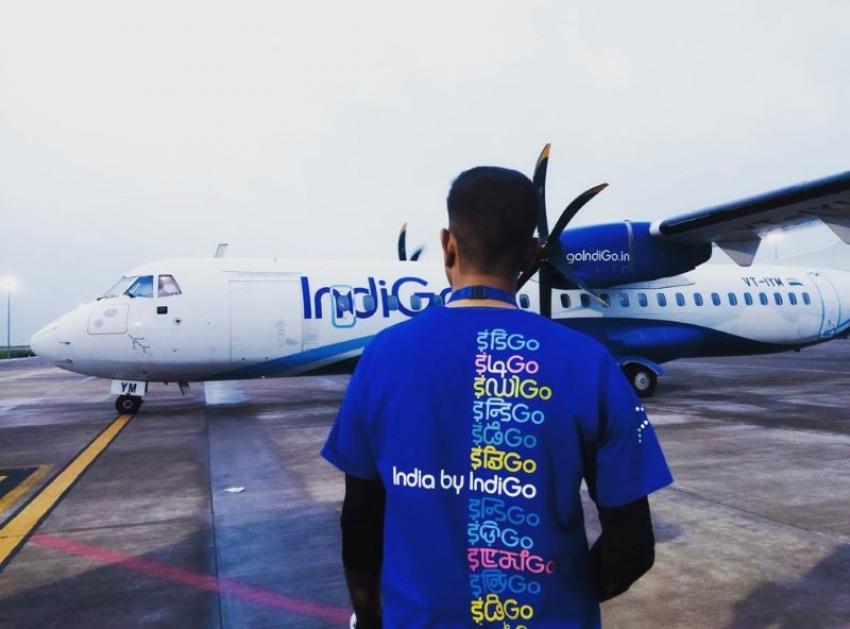Just Earth News | @notintownlive | 02 Nov 2023, 05:31 am
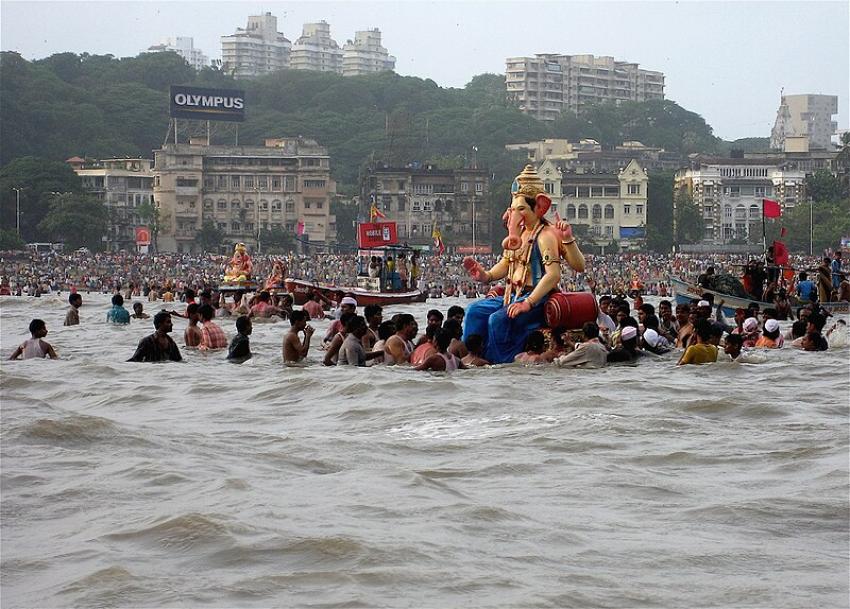 Maharashtra
Maharashtra
Photo Courtesy: Wikimedia Commons
The frenzy of the Ganesh Mahotsav in Mumbai and the grand immersion of the gigantic idols in the sea reminds Kolkata based Uttara Gangopadhyay, who represented NITN at the International Ganesh Festival 2023 in Maharashtra, of the spirit of the Durga Pujas in her home city.
From a distance, the elephant-headed god appeared to walk in the air, floating above the sea of people which thronged the narrow lane. It was only when the procession passed by our vehicle that we realised it was not any divine magic but the crowd.
The crowd had virtually hidden the truck on which the idol was riding.
Cries of ‘Ganapati Bappa Morya’ rent the air which was already thick with red and pink powder thrown by the devotees.
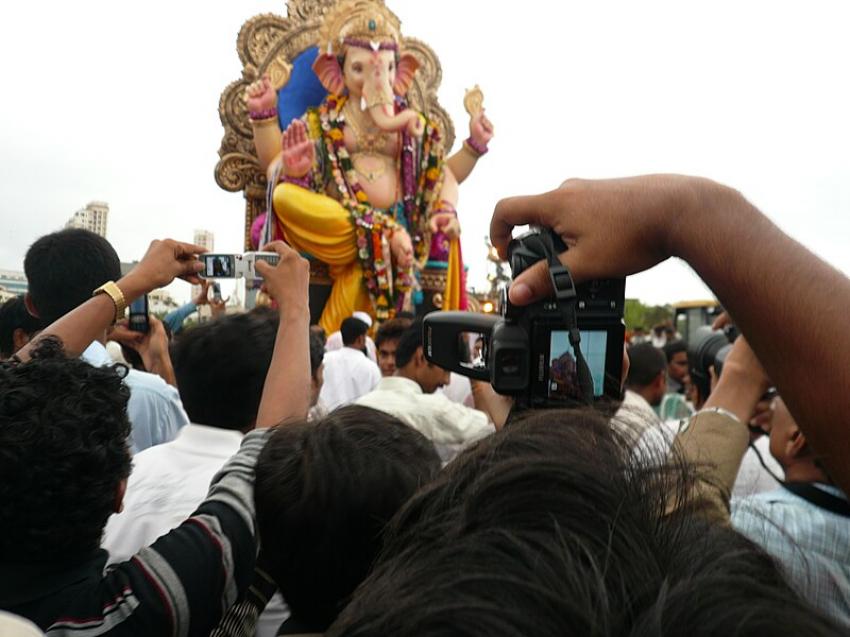 Image credit: Wikimedia Commons
Image credit: Wikimedia Commons
We were in Mumbai and it was the day of the grand immersion ceremony, which takes place on the last day of the 10-day Ganeshotsav (Ganesh Festival), the biggest festival of Maharashtra.
As part of the team invited by Maharashtra Tourism to join the first International Ganesh Festival organised by them, we had already experienced how the festival is celebrated in rural Maharashtra.
The second phase provided us with a grand view of the festival in Mumbai, especially the large neighbourhood celebrations.
On the first day of our two-day stay in Mumbai, we visited the famous Siddhivinayak Temple in Prabhadevi.
The original temple, which was consecrated in November 1801, was a small structure, housing a stone idol of Siddhivinayak (another name for Ganesh).
The present temple is a six-storied structure with a multi-angular façade and covers a large area.
On festive days, expect to stand in long queues to enter the sanctum sanctorum.
(Note: It is customary to enter the temple barefoot. Also leather accessories, such as belts, are not allowed. But you may leave them at the stalls located within the main complex for a payment. During the time of our visit, carrying mobile phones inside the temple was allowed. But it is best to check for the latest directives).
As our bus moved along the streets of Mumbai, we could see large mandaps (marquees) housing the Ganesh idols, looming all over the city, many shaped after various famous architectural monuments; a delightful sight to a Calcuttan like me, a reminder of the festive cheer and decorations which mark Durga Puja in Kolkata.
Interestingly, the ‘sarvajanik’ or neighbourhood festival owes its origin to a patriotic fervour.
It is said that during the colonial period, when national leaders were trying to inspire the common people to raise their voices unitedly against the British, their efforts would often be thwarted by the rulers.
Bal Gangadhar Tilak, an Indian leader from Maharashtra, hit upon the idea of holding the Ganesh festival in public spaces.
People were urged to come together to hold the festival in their neighbourhoods; thus, creating an opportunity to spread the message of unity among the people who would assemble to organise and celebrate the festival.
It is said that the first neighbourhood festival was held at the Keshavji Naik Chawl in Girgaon in 1893.
Owing to parking woes, we could stop at very few places.

At the Mumbaicha Raja mandap in Lalbaug, they had created the invincible Raigad Fort, which was chosen by the Marathi ruler Chhatrapati Shivaji Maharaj in 1662, as his capital.
Another famous mandap that we stopped at was the GSB Sarvajanik Ganeshotsava Samiti, Wadala.
The evening found us tracing our way back to Prabhadevi, for a glimpse of the cultural extravaganza organised by Maharashtra Tourism at the Rabindra Natya Mandir.
A frenetic beating of drums and the shrill blowing of the ‘tutari’ (a traditional wind instrument) welcomed us as we walked down the red carpet.
It was lovely to watch artists from various genres – sand art, mosaic, scrolls, etc., - projecting Ganesh in their own way.

Ganesh Mahotsav is one of the best times for people from other states as well as from abroad to visit Maharashtra, said Radhika Rastogi, IAS, Principal Secretary, Department of Tourism.
Talking to NITN, she said, “Nowhere in India it [Ganesh Mahotsav] is celebrated like it is celebrated in Maharashtra. We have organised tours to the various mandaps so that people do not feel lost because it can be overwhelming for anyone visiting for the first time.”
She also highlighted that focus has been to showcase the festival celebrated in the rural areas too so that visitors get an idea about the lesser known places of Maharashtra.
Rastogi was accompanied by a team of foreign delegates as well as members of the various consulates, according to the organisers.
In between watching the cultural performances which consisted of the energetic folk dances of the state, we also shopped for trinkets and souvenirs at the various stalls set up here.
Next day, after a drive past some of the famous landmarks of south Mumbai and a customary stop at the Gateway of India, we arrived at the Girgaon Chowpatty where a large area had been earmarked for the immersion ceremony.
By the time we reached the decorated air-conditioned pavilion set up by the tourism department in the afternoon, the household idols had already started trickling in.
A picnic-like atmosphere prevailed. Young and old, families with children, weaved in between the arriving idols while vendors plied their wares.
Family members accompanying the idols performed various rituals, including offering food to the god before bidding him goodbye. Then the idols were carried to the sea and floated among the waves.

But as the afternoon lengthened, the large idols started arriving accompanied by huge processions and the drama began to unfold.
Even the sharp showers could not damp the vibrant mood.
Meanwhile, the beachfront was lit up and the public announcements warning people to give way to the carts carrying the idols, to be cautious while getting into the water, etc. had reached a feverish pitch.
Many young people had even hired boats to watch the immersions.
The huge idols were lined up against the waterfront and would be taken by turns to the middle of the sea for immersion.
- From Kennedy’s Proposal to 1850s Saloons: The Three Historic D.C. Restaurants Everyone Must Try
- This city has the best bagel in the US, and it’s not New York!
- I escaped to Pachmarhi — what I found in the queen of Satpura left me spellbound
- Air Canada just ranked the Best New Restaurants of 2025 - And the Top Spot isn't who you think
- Rediscovering Arunachal's Monpa Cuisine: One Woman’s Millet Momo Revolution
- Discovering Heritage: A visual journey through Odisha crafts museum Kalabhoomi
- From kebabs to biriyani: Lucknow gets UNESCO honour for its royal cuisine
- Delta takes Spanish flavours to the skies
- Kolkata’s iconic Kathi Roll among world’s top 10 wraps: TasteAtlas
- Yellow Taxis and the Colours of Puja
Air Canada has introduced a new non-stop route connecting Toronto with Rio de Janeiro, with the first flight landing in the Brazilian city on Friday morning.
Air India, India’s leading global airline, and Maldivian, the national airline of the Maldives, have entered a bilateral interline partnership aimed at boosting connectivity between the two countries.
IndiGo, India’s largest airline, is grappling with one of its most severe operational crises in recent years, with widespread flight delays and cancellations disrupting travel across the country for a second consecutive day.

